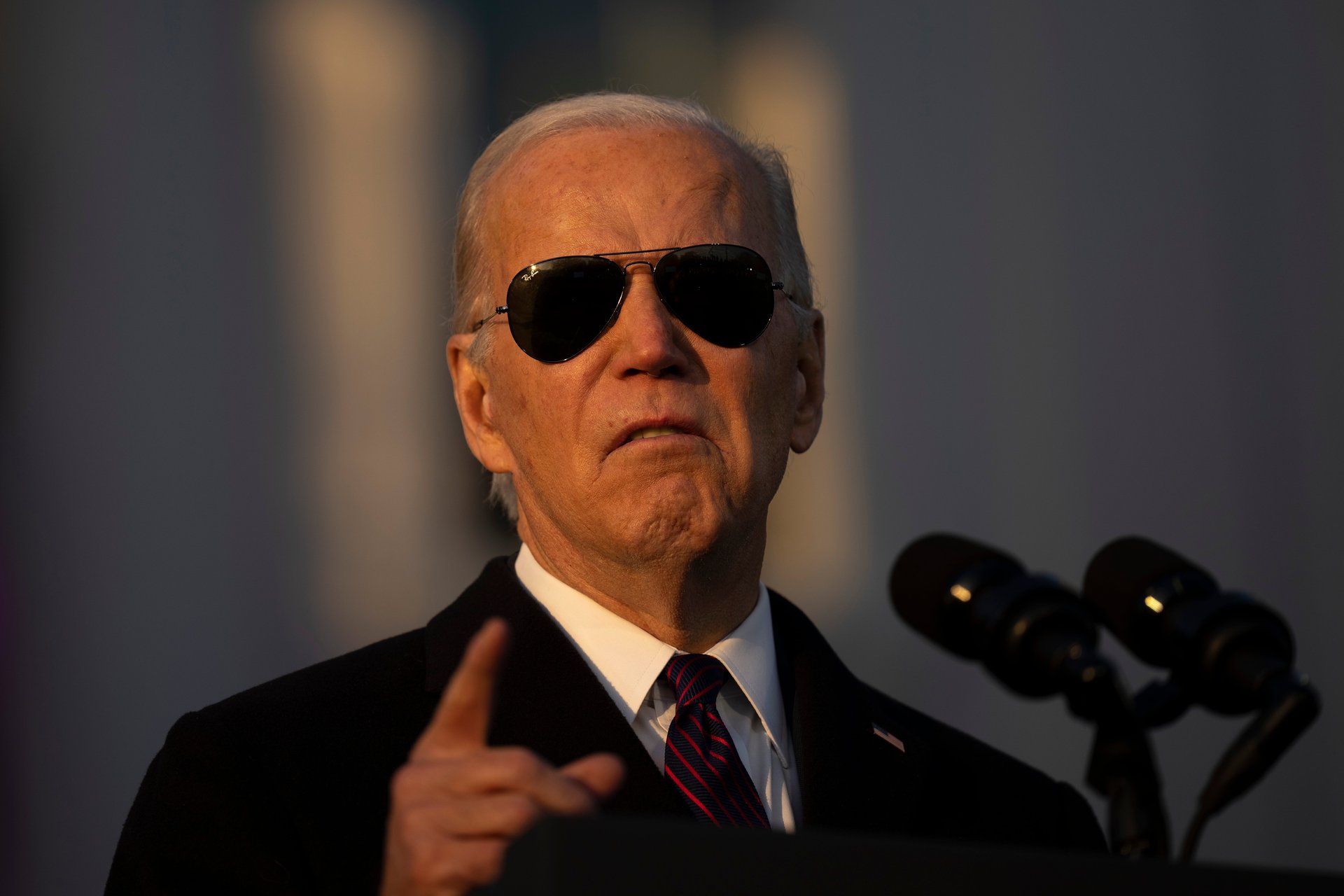🌏 US restricts Chinese tech
Plus: EU carbon tariffs are coming to town

Good morning, Quartz readers!
Here’s what you need to know
The Biden administration announced broad restrictions on Chinese tech companies. The latest move by US officials targeted China’s access to technologies that could be used for military purposes, including prohibitions on semiconductors, artificial intelligence, and microchips.
UK interest rates hit a 14-year high. The Bank of England raised rates from 3% to 3.5% in an attempt to further quash inflation, which eased a bit in November. The European Central Bank and Swiss National Bank also went ahead with their own 0.5% increase.
A US watchdog was allowed to audit publicly-traded Chinese companies for the first time. The decision eases the threat that major firms, such as Alibaba, will be delisted from the US stock exchange.
India tested a long range missile as tensions flared with China. The ballistic missile was capable of carrying nuclear weapons and, according to Indian authorities, could reach most of the Chinese mainland.
Thailand’s princess was hospitalized after she collapsed while training her dog for a military competition. Princess Bajrakitiyabha, the eldest daughter of King Maha Vajiralongkorn, was treated for a heart problem at a hospital in Bangkok.
The US announced a multi-billion dollar investment in African infrastructure and trade. At a White House summit with African leaders, president Joe Biden said that “the US is all in on Africa’s future” as the country looks to reassert influence in the region.
What to watch for
Thousands more people are expected to cross into the US from Mexico as a covid-era rule that had become a key border enforcement policy is due to expire on Dec. 21.
The Trump administration invoked Title 42, a public health order enacted in 1944 that allows authorities to expel individuals who come from countries where a disease has spread, shortly after the covid-19 pandemic hit in March 2020. The policy effectively allowed border patrol officers to turn away people fleeing their countries without giving them a chance to seek asylum.
Immigration rights advocates hope Title 42’s expiration could create an alternative to a deterrence-focused border policy. The Department of Homeland Security secretary Alejandro N. Mayorkas has recently recognized that the immigration system is “under strain” at all levels—federal, state, and local—and that congressional action is needed to reform the immigration and asylum systems.
EU carbon tariffs are coming to town
Carbon emissions will soon affect EU tariffs. Earlier this week, the bloc finalized a new import tariff scheme that will tax steel, cement, fertilizer, iron, aluminum, and electricity, based on the volume of carbon emissions generated during manufacture in the country of origin.
The “carbon border adjustment mechanism” (CBAM), designed to protect European manufacturers, will be implemented in phases, but is slated to fully kick in over a decade from now in 2035. That should give enough lead time for importers to figure out the emissions of specific products, buy corresponding permits, and buffer consumers and exporters from a price shock.
CBAM is expected to have a one-two punch: The EU will receive more low-emission versions of products, and it will incentivize investment in low-emissions manufacturing as exporters seek to avoid the tariff. An outstanding question is one of equity, as developing countries may not have the money to make the low-carbon shift.
The most unheralded people of the year
Do the names Lina Khan, Sherry Rehman, or Andrew Parker ring a bell to you? Even if they do, how much do you really know about these people, who were just a step outside of the spotlight at the biggest events of this year?
✦ The next issue of the Quartz Weekend Brief will profile these less-familiar but all-important faces. You’ll need a Quartz membership to read our list of the Unheralded People of 2022—and lucky for you, we’re offering 50% off if you sign up today.
Quartz’s most popular
🤨 8 countries wanted Iran to stay on the UN’s Commission on the Status of Women
Surprising discoveries
The first ever fossilized cockroach sperm was found. File this under discoveries that we didn’t need.
We may be on the verge of a new epoch. But geologists are checking the rock record before the Anthropocene is made official.
Someone solved a 2,500-year-old puzzle for his PhD thesis. It involved Sanskrit, grammar, and an ancient proto-algorithm. No biggie.
A new supergroup of predators has been identified. But fear not! The water-dwelling Provara are single-celled and very rare.
Prosthetic hands got an airy upgrade. Researchers at Oxford created a model powered by breathing.
Our best wishes for a productive day. Send any news, comments, Happy New Epoch shirts, and 2,500-year-old puzzles to [email protected]. Reader support makes Quartz available to all—become a member. Today’s Daily Brief was brought to you by Sofia Lotto Persio, Tim McDonnell, Diego Lasarte, Julia Malleck, and Morgan Haefner.